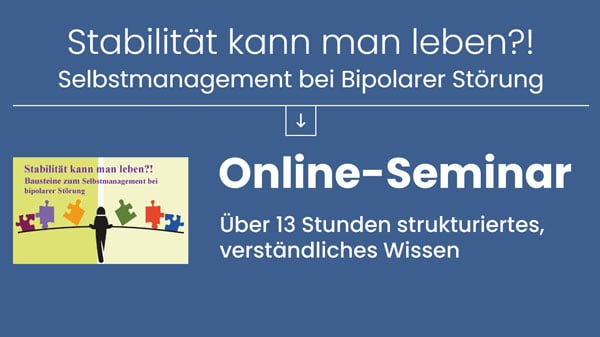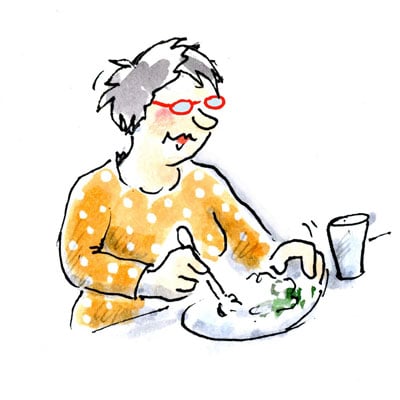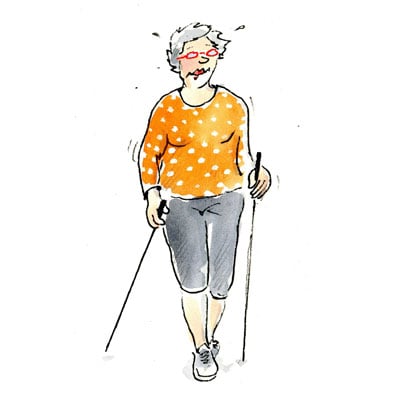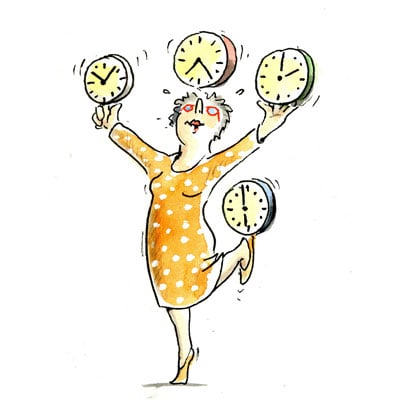YOUR BIPOLAR PILOT
My name is Annett Oehlschläger, I am bipolar. On this website I would like to give you an overview and encourage you that, in addition to the established guideline treatment, there are ways to achieve more stability through changes in lifestyle and eating behavior. I have read hundreds of studies and books on this topic and have summarized my findings in two books (“Stability you can eat?!” and “Stability as a way of life”).

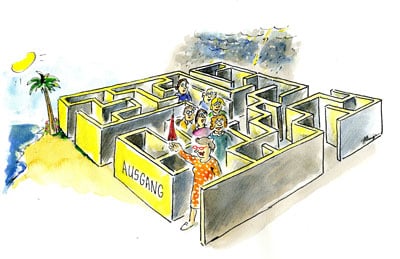
I would like to help you find your way through the bipolar labyrinth and support you in navigating it. In this sense, I see myself as a “pilot”. This website, my books and the online seminar are intended to be “door openers” and “signposts” for you on your way to finding your very own way of dealing with bipolar disorder. I can show you a few ways to do this, but you have to go down this path yourself. Nobody can do that for you.

STABILITY as a way of life
Achieving and maintaining mental health
After the great demand for my first book “Stability you can eat!?” I am delighted to announce the publication of the follow-up book “Stability as a way of life” (currently being translated).
In it, I take a much closer look at the “psychiatric system” and the use of psychotropic drugs. I also explain the deeper connections between brain health and our mood.
First review of the new book “Stability as a way of life”
I am delighted to provide an excerpt from a very detailed review here.
Anyone who works through “Stability as a way of life” with concentration will quickly learn about the wealth of options available to them in the event of mental illness. The fact that these – based on the author’s own life experience – are discussed along the lines of the clinical picture of bipolar disorder is not a limitation. Sufferers of unipolar depression, schizophrenia and other affective disorders benefit equally from Annett Oehlschläger’s knowledge and wealth of experience. The book focuses on the question: What does our brain actually need to function properly? How can a mentally stable life succeed?
MY BUILDING BLOCKS OF THE TREATMENT
In my opinion therapy for bipolar disorder should not only include the elements of psychotropic medication, psychotherapy and occupational therapy that have been practiced up to now, but many more building blocks are needed, which you can see in the puzzle. These elements are all intertwined and promote each other. It is the synergy of the individual parts that can make recovery possible!
At the beginning of my illness, I often had the impression that I was helplessly at the mercy of the disorder and couldn’t do much myself. Mood swings and drive problems come over me that I can’t fight. It took many stays in hospital and many hours of psychotherapy before I gradually got my feet back on the ground.
It was only when I learned to manage my energy, to use it in moderation, to take good care of myself and to achieve balance through a healthy alternation of tension and relaxation that I was able to escape this vicious circle of mania – depression – mania – depression. These recurring phases only stopped when I started to feed my body differently and thus gave it the substances it needs to produce the energy it requires. There is not THE one substance, but rather several building blocks that have made up my stability ever since.

As you can see in the puzzle, nutrition is closely linked to exercise and sleep. These are the building blocks of stability, so there is a lot of useful information about them in my book.
MY BUILDING BLOCKS OF STABILITY
After struggling my way through the psychiatric system and finally emancipating myself from it, I stopped relying on medication alone. I believe there is an interaction between body and psyche, and it was only when both were strengthened that I was able to become permanently stable. My therapy has taught me a lot about helpful things about my psyche, but not about my body. I have gained this knowledge myself and used it to develop my building blocks for long-term stability.
Below I provide an insight into my most important building blocks of stability. You can find more building blocks and further information in my book “Stability you can eat!?”.
Interview with Prof. SPitz (Available only in German)
In this top interview with Prof. Dr. med. Jörg Spitz, we talk about ways to achieve mental stability and the influence our diet has. Prof. Spitz is a physician for nuclear, nutritional and preventive medicine and founder of the Academy for Human Medicine, an information platform for prevention and holistic medicine. In a network, it brings together doctors, therapists and coaches with science and research, industry as well as patients and people interested in prevention, e.g. at the annual congresses for human medicine. Prof. Spitz is considered by many to be the “vitamin D pope”, as he has given many lectures and published several books on the subject.
I met Prof. Spitz at a congress and was impressed by his lecture. I became a network partner and was able to give a presentation on the topic of “Burnout and depression” at the Congress for Human Medicine 2021.
FROM Patient TO EXPERT
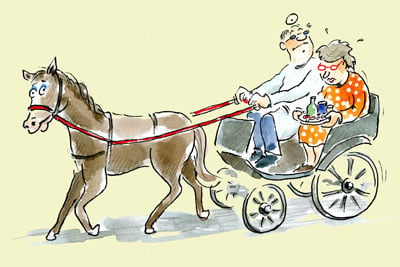
The “reins” of your own life are “taken out of your hands” by the illness. Someone else is now in charge: sometimes the doctor, sometimes a relative or “the illness”. The bipolar patient has hardly any influence on what the illness does to them. In your own “carriage of life”, you are just a passive passenger who is shaken back and forth. Someone else decides which way to go.
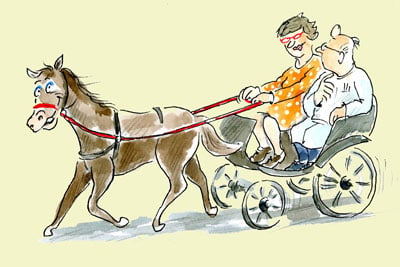
But if you manage to take the reins of your life back into your own hands, then you can not only decide where you want to go, but also whether and who accompanies you. Steering the “carriage of life” needs to be learned. Accepting help can be very useful for a while. The type and extent of the treatment is determined by the patients themselves, because they have become experts in their own illness.




